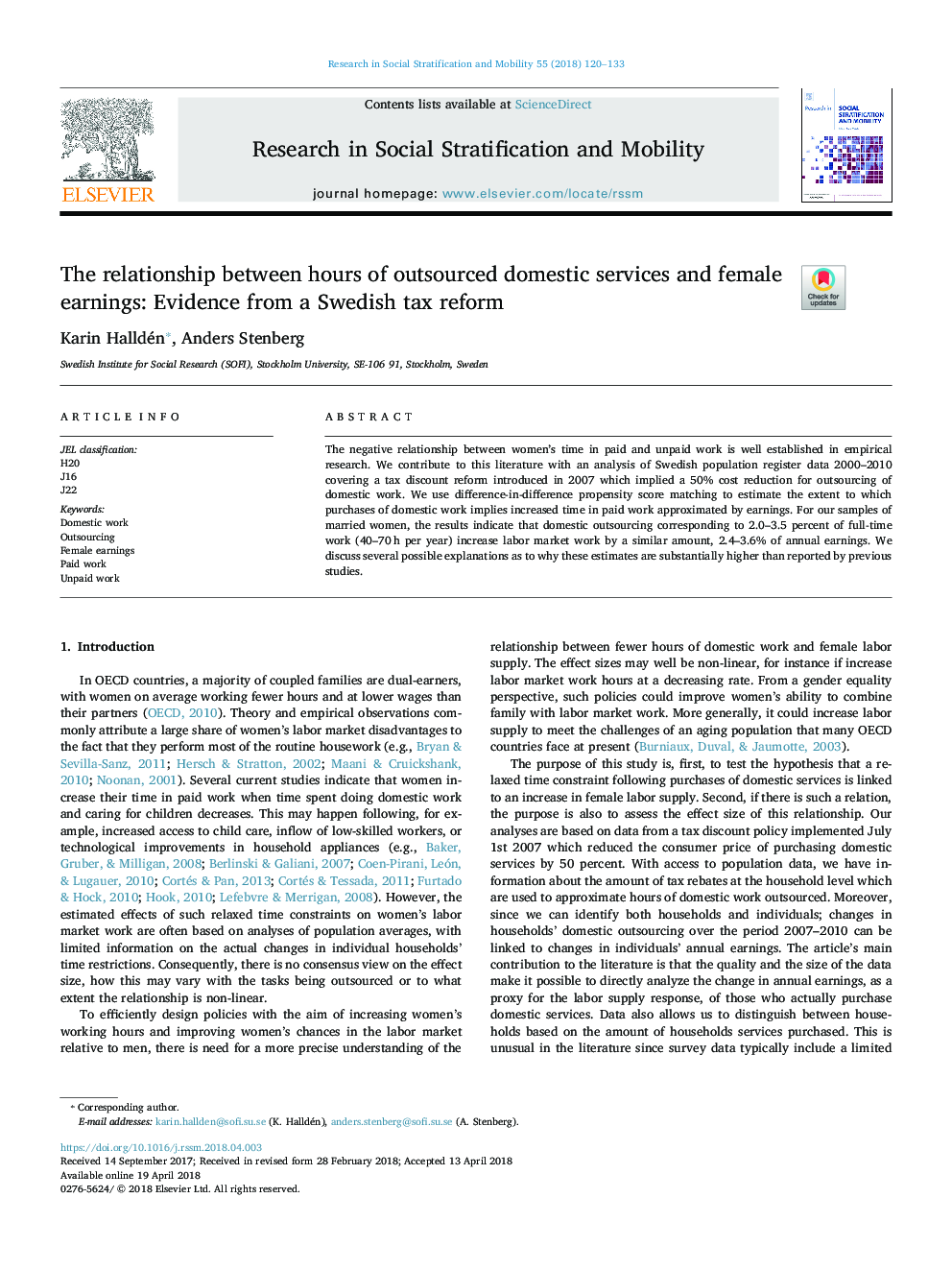| Article ID | Journal | Published Year | Pages | File Type |
|---|---|---|---|---|
| 7409884 | Research in Social Stratification and Mobility | 2018 | 14 Pages |
Abstract
The negative relationship between women's time in paid and unpaid work is well established in empirical research. We contribute to this literature with an analysis of Swedish population register data 2000-2010 covering a tax discount reform introduced in 2007 which implied a 50% cost reduction for outsourcing of domestic work. We use difference-in-difference propensity score matching to estimate the extent to which purchases of domestic work implies increased time in paid work approximated by earnings. For our samples of married women, the results indicate that domestic outsourcing corresponding to 2.0-3.5 percent of full-time work (40-70â¯h per year) increase labor market work by a similar amount, 2.4-3.6% of annual earnings. We discuss several possible explanations as to why these estimates are substantially higher than reported by previous studies.
Related Topics
Social Sciences and Humanities
Economics, Econometrics and Finance
Economics, Econometrics and Finance (General)
Authors
Karin Halldén, Anders Stenberg,
